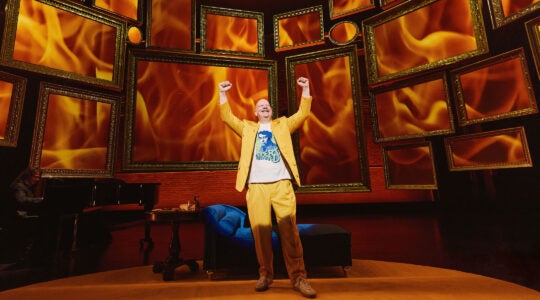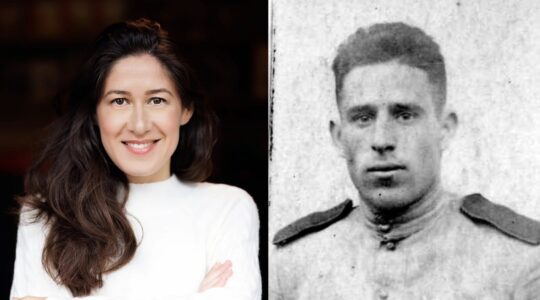In “Wish I Was Here,” Zach Braff’s character, Aidan Bloom, has a question that many Jewish parents share. How am I going to pay the children’s yeshiva tuition?
Braff, who played a doctor on the NBC show “Scrubs,” here plays a struggling actor who can’t land a gig. He is supported by his wife Sarah (Kate Hudson) and accustomed to having his father, Gabe, (Mandy Patinkin) help pay the kids' tuition.
But when Gabe’s health takes a turn for the worse, he no longer has the resources to help Aidan's brood. His father's sickness inspires in Aidan a desire to be a better husband to his wife, who feels underappreciated, and a better father to his children, who need their school fees paid.
Braff directs the movie and wrote it with his brother Adam. He is likeable, and has retained the boyish charm he displayed in “Garden State,” an indie hit he wrote, directed and starred in. This movie generated some early buzz when Braff, feeling some financial stress of his own, turned to the crowdfunding site Kickstarter to pay for the movie instead of finding investors through the usual Holllywood network.
That level of creative control probably came in handy making “Wish I Was Here," which has more Jewish references than most American movies of the last decade combined. Some are done well, while others feel forced. The daughter saying the Shema before jumping in the pool when she can’t swim is a bit too schmaltzy. A choir of four boys singing “Oseh Shalom” is a nice touch, but a caricature of a rabbi cursing in Yiddish after accidentally slamming into the wall is over the top. This film is surely the first to include a Hebrew and a Yiddish word for the process of excretion. The Al Qaeda-Al Roker joke is a total miss, though another about a rabbi’s breath is a total hit.
This heartwarming film has touches of brilliance, but unfortunately a few too many clichés, and runs about 30 minutes too long. And it stretches credulity to think that a father would home school his children without knowing what he is doing. Yet his character is a dreamer. In fact, he literally has a dream in which he is a superhero. And come to think of it, perhaps Jewish men (and women) need to be superheroes to afford yeshiva tuition for two children while simultaneously helping a sick parent.
In the role of the stubborn father and grandfather, Patinkin is the heart and soul of the film. He delivers a tearjerker of a line at the end that resonates. In providing comic relief, Josh Gad succeeds as Aidan’s brother Noah, a guy who masks his vulnerability under a facade of apathy toward his sick father. And Joey King is extremely impressive as daughter Grace, a smart girl who understands people better than she should at her age, even if she doesn’t understand herself.
The film poses some tough questions.
How do you honor your father when your father is harsh with you and chastises you? What’s the best way to parent when you don’t think you know what you’re doing? Is it OK to sacrifice your dream to pay the bills? More specifically, has Sarah settled for Aidan when she could have found a more suitable husband? And, of course, the big one, the one that many parents ask when they get that tuition bill.
When Aidan drops off his son at his Los Angeles school early in the film and tells him to “go be Jewish,” his son responds: “Why? It’s so boring.”
The New York Jewish Week brings you the stories behind the headlines, keeping you connected to Jewish life in New York. Help sustain the reporting you trust by donating today.




